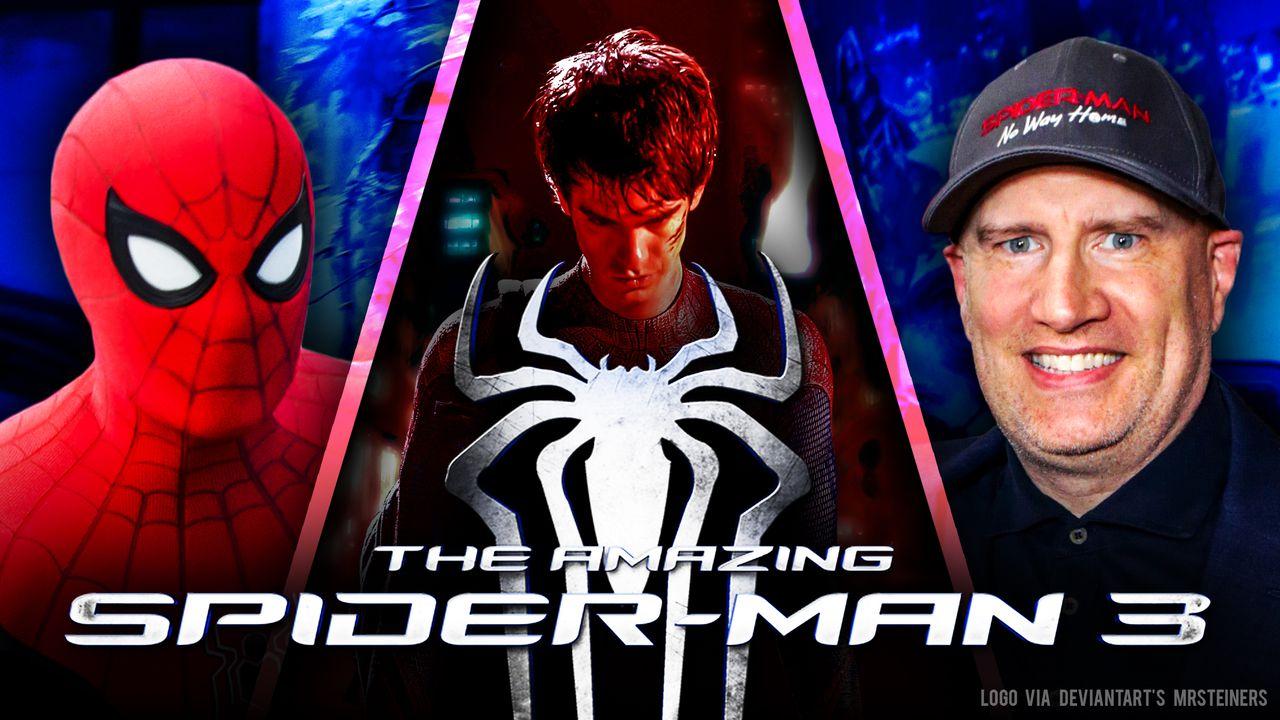
At the moment, Marvel Studios fans are seizing the moment to enjoy the latest entry in the Marvel Cinematic Universe, Spider-Man: No Way Home, which is now playing in theaters worldwide. Marvel Studios president Kevin Feige and his team are finally able to speak on this movie's treasure trove of spoilers and secrets as it adds a new thrilling chapter to the MCU narrative.
Looking back to a time immediately before the web-slinger fought against and alongside Earth's Mightiest Heroes, Sony Pictures was at the end of their run with Andrew Garfield's The Amazing Spider-Man franchise. Sony had ambitious plans for the web-slinger while the MCU was churning along, including ideas for a Sinister Six movie which was clearly set up in 2014's The Amazing Spider-Man 2.
Shortly before Sony and Marvel decided to bring Spider-Man into the MCU, plans were in place for a third solo movie in Garfield's franchise. There was a point in time where Feige was even consulted on what should happen with the character's future; the details of that encounter recently came to light in a somewhat funny fashion.
Feige and Pascal on The Amazing Spider-Man 3

Speaking with the New York Times, Marvel Studios president Kevin Feige and Sony executive Amy Pascal looked back at how their first ideas for collaboration on The Amazing Spider-Man 3 came to be.
After Pascal led the way on 2014's The Amazing Spider-Man 2, she called Feige in for help on the upcoming sequel, which ended with her famously hurling a sandwich right towards the man behind the MCU:
"That is the truth. I called Kevin and said, 'Help.' And then he came over to my office for lunch and said, 'I know how to help you.' And then I threw a sandwich at him."
Feige came right back at her by telling her that the only way he really knew how to help on a project like this was if Marvel simply "(made) the movie" for Sony:
"She said, 'I really want you to help on this next movie. We have these great ideas for the next one. It’s amazing stuff.' And I said, 'I’m not good at that — giving advice and leaving. The only way I know how to help is if we just make the movie for you.'
Moving back to the flying sandwich, although Feige couldn't remember the exact ingredients that hit him, it was clear that Pascal wasn't a fan of what he was laying on the table:
"It was a pretty low-key sandwich. I don’t remember what kind. But, yes, she did not like that suggestion."
Then came Feige's idea to have Peter Parker join the MCU under the tutelage and guidance of Tony Stark, which sparked something in Pascal as well. Once the idea began forming more fully, the Sony executive saw the golden opportunity that Marvel and Sony had to bring the character to life in a new way, particularly with it feeling "so much more modern:"
"And then Kevin called me and came over to the house and said, 'I have an idea. What if Tony Stark makes Peter’s suit?' And as soon as he said that, I understood the possibilities of what we could do together. To have Iron Man and Spidey in the same world, one rooted more in technological innovation — the new suit — and less in medical experimentation, which is where we were confined before, felt so much more modern. It has taken a lot of work. But just look at the results. Pretty fantastic, right?"
From Amazing Spider-Man to Spider-Man: Homecoming
Although it's brought incredible success both financially and critically, Marvel and Sony's relationship hasn't always been the easiest one for the two movie moguls to manage.
It started off with this semi-ill-fated meeting between Feige and Pascal that ended in food being hurled from Pascal. On that same note, Marvel even held top-secret meetings to plan out their ideas for Spider-Man joining the MCU in order to slow down Sony's own ideas to continue developing Garfield's The Amazing Spider-Man movie duology into a full trilogy.
Even once Spider-Man was fully integrated into the MCU, Marvel and Sony had a short falling out after 2019's Spider-Man: Far From Home, nearly making Spider-Man: No Way Home null and void. Thankfully, this was resolved in a big way, as was Feige's initial meeting with Pascal over the web-slinger's future.
Through it all, Feige and Pascal showed that they both wanted what was best for Peter Parker and the Spider-Man franchise, which ended up with their studios coming to an agreement to bring him into the ever-growing MCU. Now, the stage is set for the young hero to see an extensive future with Marvel Studios, which includes as many as three solo movies already in development.
Spider-Man: No Way Home is now playing in theaters worldwide.
Richard Nebens joined The Direct in March 2020, now serving as the site's Senior Writer and also working as an assistant editor and content creator. He started his journalism career as a hobby in 2019 and is passionate about sharing news and stories from the entertainment industry, especially comic book movies, comedy, and sci-fi. Richard looks to expand his knowledge about movies and TV every day, and he is eager to stay locked into the latest releases and breaking news at every opportunity.












